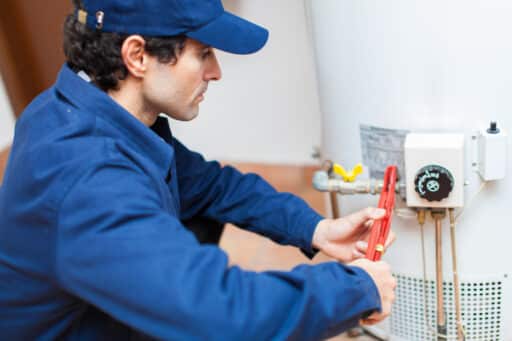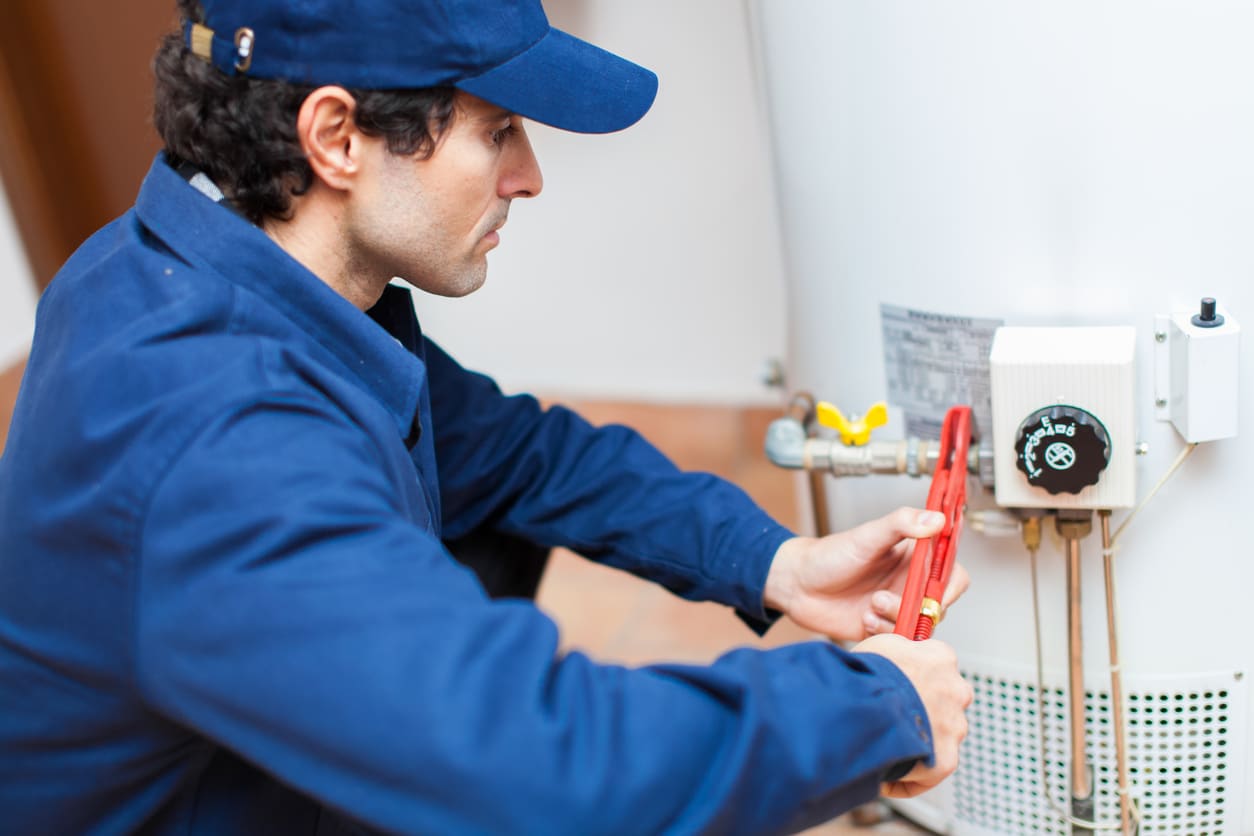When it comes to the comfort and convenience of our homes, we need to have a few things in our homes that will be properly functional. One of the most essential is the Water Heater. Whether you are upgrading to a new one or repairing the old one, you must know how long it takes to install a water heater.
One of the worst situations is getting ready for a hot shower and turning on the shower head only to get a faceful of ice-cold water. Even though this event can result from a circuit breaker tripping, it may be necessary to replace your water heater if it is also making odd noises, leaking, or creating rusty water.
Therefore, you might be thinking about how to replace it and how long it takes to install a water heater. Without any further ado, let’s dive into our comprehensive guide on installing water heaters in the best possible manner so that you always remain up for your any project.
Step-By-Step Guide on Installing a Water Heater?
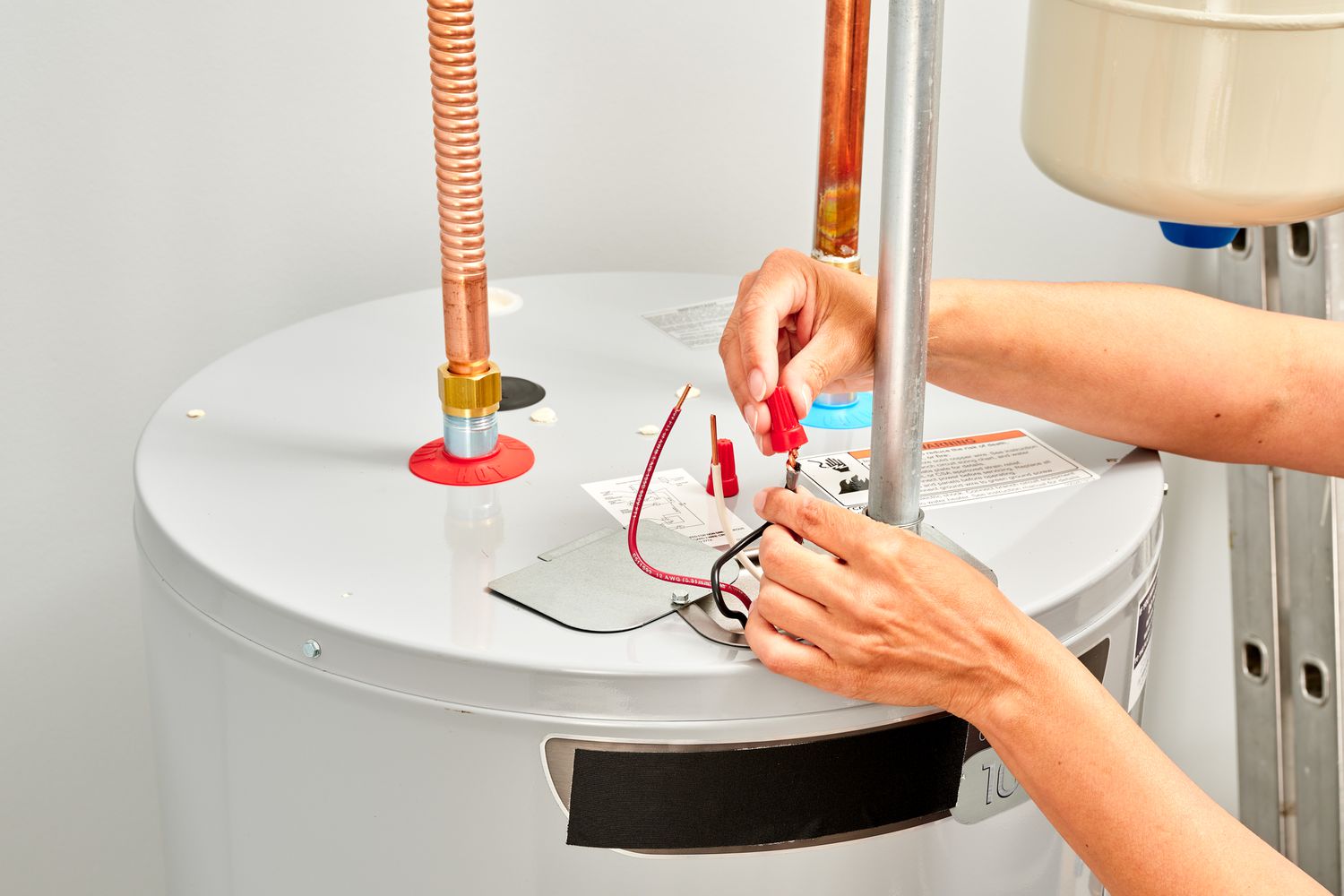
Owning a house requires maintaining and taking care of it regularly. The time it requires to do maintenance or repairs depends on what needs to be done. Each task has its steps and time and a schedule to follow. Some tasks include a longer period, while others include a relatively short time.
One such is the maintenance of the water heater. In this blog, we will discuss how long it takes to install a water heater. Let’s dive into the process step by step to give a clear picture. You should keep in mind that the scheduled time will depend on the system you choose.
Replacing your current water heater with a similar one requires much less time than installing a new system of water heaters. Typically, a good plumber will take 2-3 hours to install a water heater.
Step 1: Pre-Installation Preparation
There are a few essential tasks that must be completed before the actual installation. This includes determining the position of the water heater, ensuring all the necessary tools are handy, and if there is an old system, it should be discarded. This process can take 1-2 hours, depending on the complexity of the whole process.
Step 2: Removing the Old Water Heater
If you are replacing the old water heater, then removing it is the next process. This involves first shutting off the water supply, then draining the old tank, and, at last, disconnecting the connections. For the water heaters, wiring the unit correctly is essential. This process can take around 1-2 hours, depending on any unexpected complications that may arise.
Step 3: Installing the New Water Heater
The actual installation process of the water heater starts with removing the old water heater and connecting the new unit to the existing plumbing and utility connections. This includes attaching the water lines and ensuring proper ventilation. So, how long does it take to install a water heater? This step can take around 2-4 hours, depending on the type of water heater and the complexity of the process.
Step 4: Testing and Inspections
After the installation is done, thorough testing is required. It is essential to make sure that everything is working properly. There are no leaks. The temperature is proper. All the settings are correct. This process can take around 1-2 hours.
Step 5: Cleanup and Final Touches
Once everything is done and properly installed, then the final thing to do is clean up the whole work area and make any final adjustments if required. This process includes discarding the old water heater and checking the installation area is left in good condition. This process usually takes 1 hour.
When Do You Need a New Water Heater?
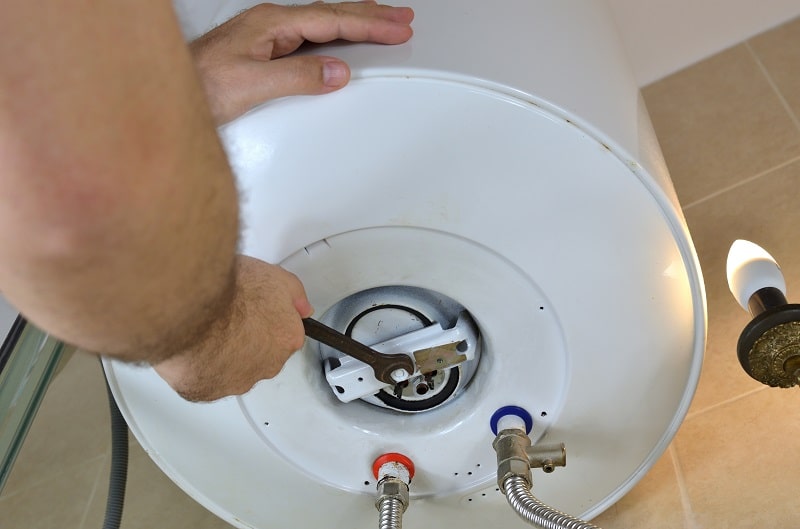
If you suddenly get cold water during a shower or you have to use chilly cold water for washing dishes, but you are not getting warm water. This means that your water heater is not working anymore. Also, there may be some cases in which water leaks around the water heater. Then, it is a signal to replace your water heater.
Some signs show that your water heater is showing signs and having problems. It’s a good idea to pay attention to these signs. Before the water heater completely stops working, it can be costly.
Here are some of the key indicators that you need a new water heater:
- Age of the water heater: A water heater typically lasts from 8 Years to 10 Years. Even if it runs perfectly, you must consider replacing it as your unit runs or exceeds this age range.
- Rust and corrosion: Rust and Corrosion are signs of wear and tear on the water heater’s tank and connections. Rust weakens the metal and can eventually lead to leaks. Corrosion can affect the efficiency of the water heater as it inhibits heat transfer. Check for any reddish-brown stains, flaking metal, or signs of deterioration around the tank and fittings.
- Leaking: Any presence of water near the water heater, whether it is a small puddle or pooling beneath the unit, suggests a leakage. While some leaks can be repaired, significant or persistent leaks might need to be replaced because repairs might not be long-term solutions.
- Inadequate warm water: If your water heater is unable to supply adequate hot water for your needs, then it indicates there may be a problem with the water heater. Sometimes, sediment builds up in the bottom of the tank of the water heater. This insulates the water heating. This results in the reduction of the efficiency of the water heater. While these issues can, at times, be fixed, if they continue regularly, a new water heater may be a preferable option.
- Strange noises: Sediment buildup in the bottom of the tank of the water heater is frequently the origin of strange noises from the machine. Strange sounds include gurgling, popping, or rumbling. Removing the sediments from the water tank might be helpful in some cases, but if the sound continues, then it could be a sign that the water heater needs to be replaced.
- Rusty water: If the water appears to be rusty or discolored, it suggests the water inside the tank is deteriorating. This could be due to rusting mastering inside the heater. You can get rid of this discolored water after running the tap for a few minutes. But if the disclosed water persists, then it is a clear indication that the heater’s internal components are deteriorating.
- Increased electricity bill: Old water heaters can become less energy efficient because of the sediment buildup, reduced heating performance, and increased heat loss from the tank. If you notice a significant rise in the electricity bill without any other explanation, you should check whether your water heater is contributing to the increased energy consumption or not.
- Physical damage: Dents, cracks, or other physical damage to the water heater tank can affect the structural integrity of the tank. Physical damage decreases the efficiency of the water heater and increases the risk of leaks. Even though the damage seems small, you must address the problem immediately.
Types of Water Heaters and How Long Does it Take to Install
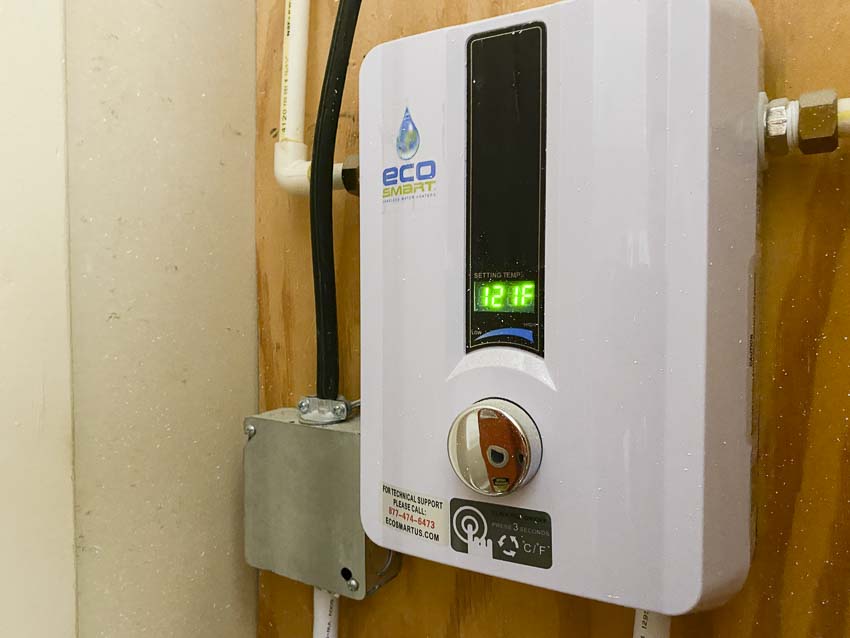
- Tank Water Heater: Tank water heaters are the most common type of water heater. They are available in various sizes. They store and heat water in a tank. The installation of a Tank Water Heater takes around 2 to 4 hours approximately.
- Tankless Water Heater: Tankless water heaters are currently the most demanding water heaters. This type of water heater heats water directly as it flows through the unit. They are more energy efficient. However, these water heaters are more complex to install because they need proper venting and gas/electric connection. The installation might take 4 to 8 Hours approximately.
- Point-of-Use Water Heater: Instead of providing warm water to the whole house, the point-of-use water heater only supplies hot water to a specific part of the plumbing fixture, like a kitchen sink and many more. They have a small tank to store a limited amount of water for immediate use. The installation of these types of heaters is relatively quick and takes approximately 1-2 hours.
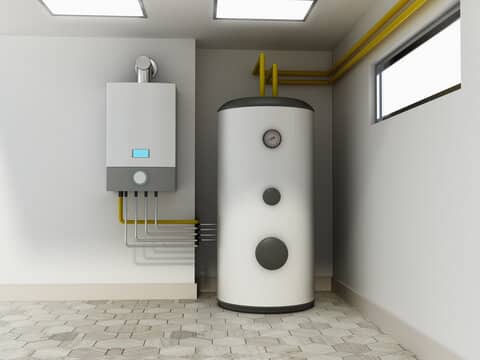
- Solar Water Heater: Solar water heaters use energy from the sun. This reduces yearly utility costs as they consist of solar collectors and storage tanks. They have a large insulated tank where the water is stored. It is stored until it is ready to be used. The solar water heaters are mounted on the roof with solar panels. Installation time can vary significantly depending on the type of solar system you choose. And how long does it take to install a water heater? It can take up to 8 to 16 Hours or more.
- Hybrid Water Heater: A hybrid water heater works differently than the traditional one. It utilizes a heat pump to extract heat from the ground and the air instead of burning direct fuel to warm the water. A hybrid water heater can use about 60% less electricity than a standard tank water heater because of this unique heating method. The installation time can range from 4 to 6 hours.
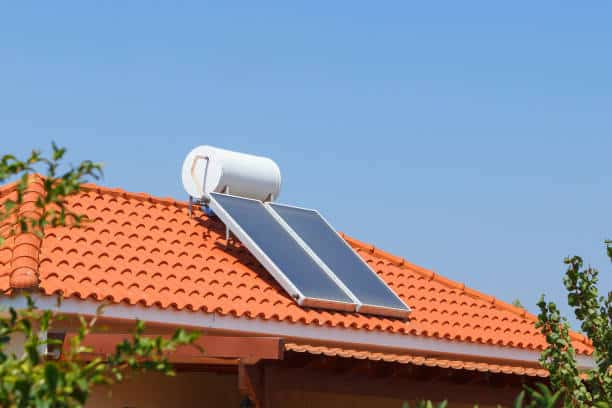
- Combination Boiler Water Heater: A combination boiler water heater is a single unit that does two things- it warms up the house and heats the water in different plumbing fixtures of the house. This water heater doesn’t cost much to run, which is good for smaller homes. The installation might take around 3 to 5 hours.
- Condensing Water Heater: Condensing water heaters are typically used with natural gas. They use heat from the exhaust gas that may be otherwise wasted. Condensing water heaters keep your electricity bill lower and use energy efficiently. And how long does it take to install a water heater? The time of installation of these water heaters may take up to 4 to 6 hours.
List of the Best Water Heaters
There are plenty of options available in the market that have been serving people’s needs in the best possible way. However, all in total, there are a few options that have taken the domain of water heaters by storm. In order to get rid of any deep-end problems, we have curated a list of some top water heater options available in the market and have marked their key feature, which is their USP. Go through the detailed aspects and explore what might suit the best for you.
1. Stiebel Eltron
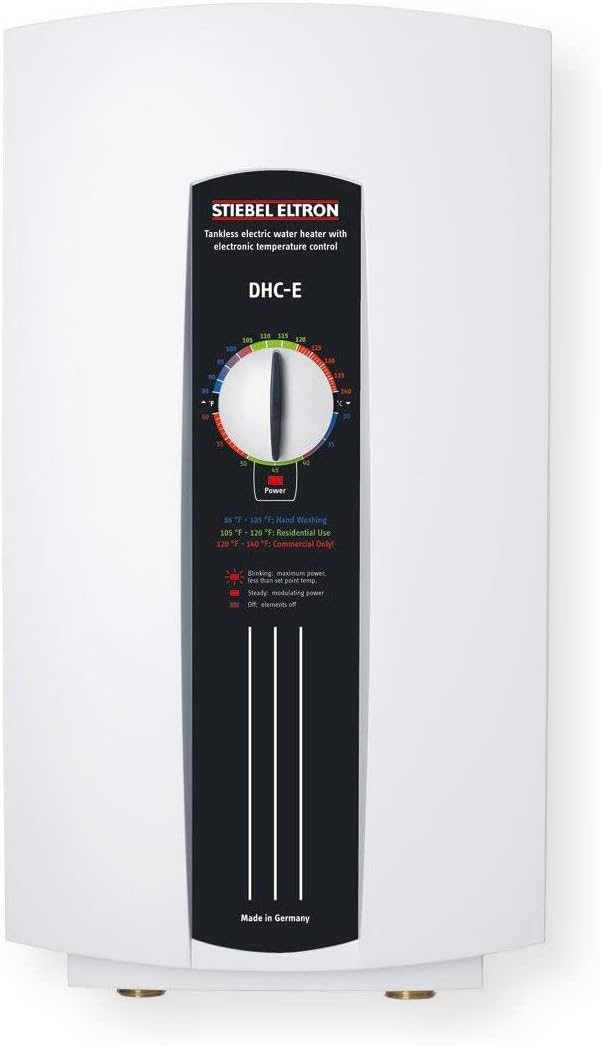
- Efficient Water Heating
- Solid Copper Heating Chamber
- Precise Temperature Control
- Space Saving Design
- Instant Hot Water
2. Bosch Electric Mini-Tank Water Heater
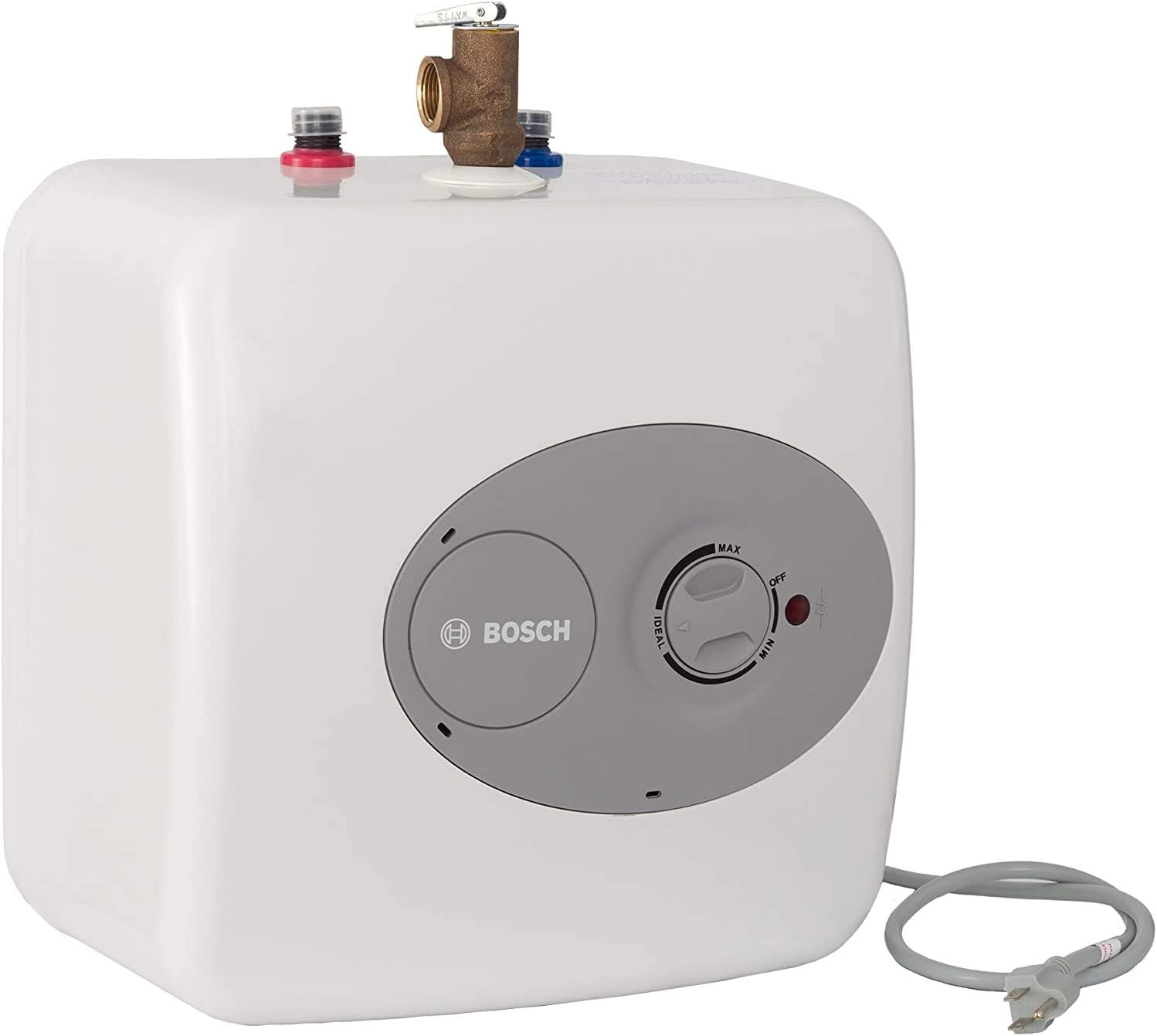
- Modern Efficient Technology
- Quality Brand
- Compact and Versatile
- Instant Hot Water
- 2.5 Gallon Capacity
- Durable Construction
- Temperature Adjustment
3. EcoSmart Element ECOS
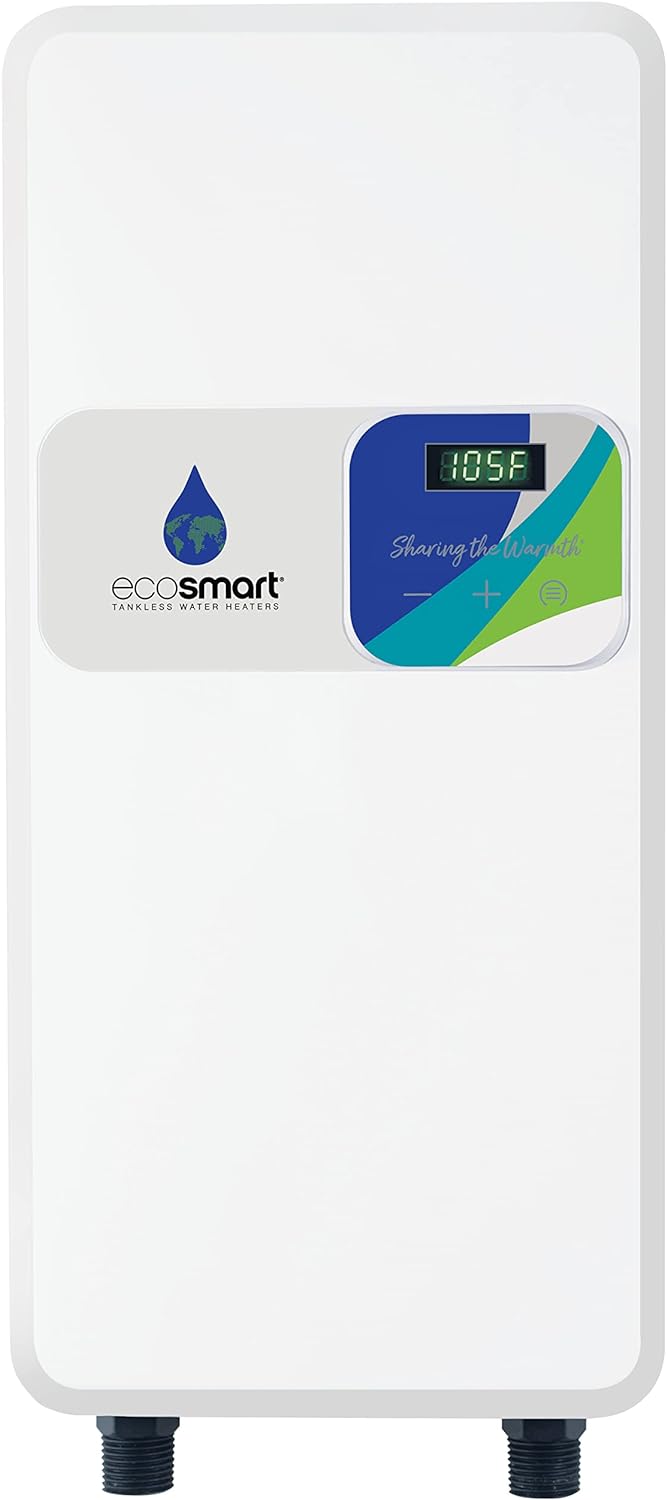
- Efficient Water Heating
- Energy and Water Saving
- Safety Features
- Reliable Brand
- Versatile Applications
- Easy Installation
- Powerful Powerfance
4. Camplux ME60 Mini Tank
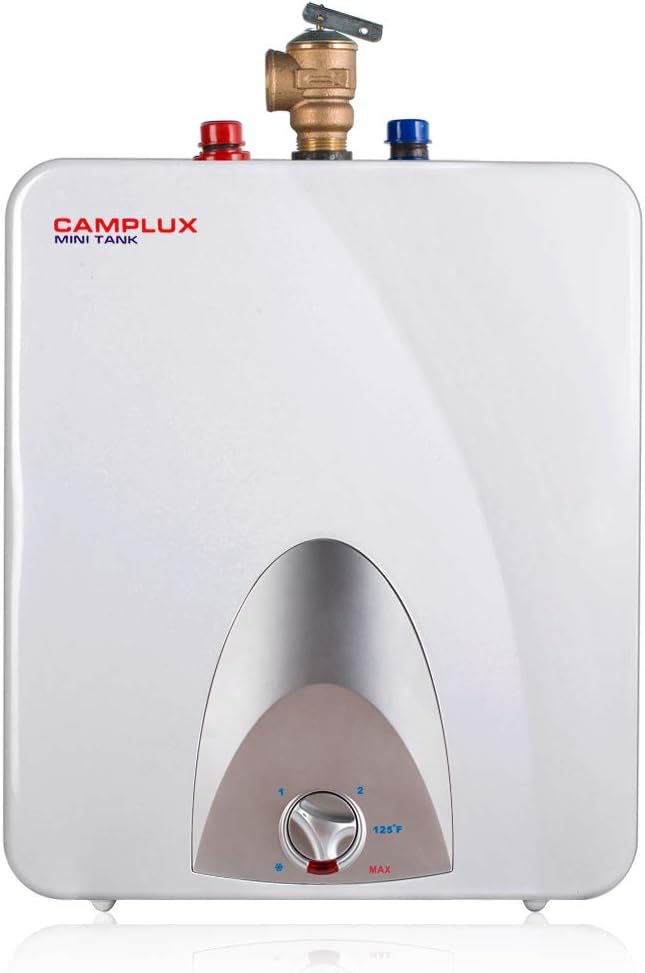
- 6 Gallon Capacity
- Trusted Brand
- Space Optimization
- User-friendly Installation
- Temperature Control
- Instant Hot Water
- Compact Design
5. Ariston 12 Gal POU Electric Water Heater
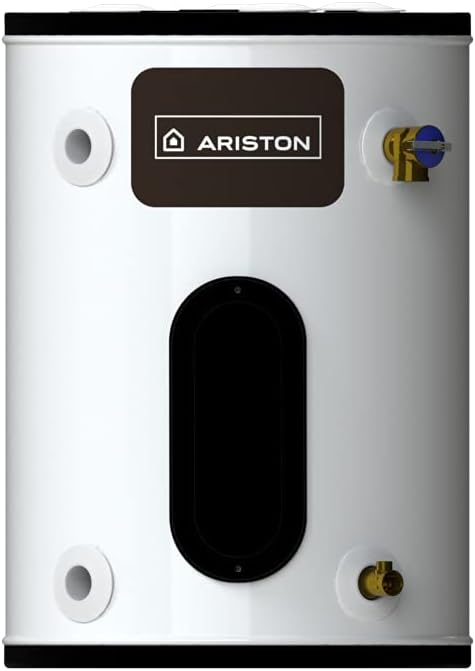
- Durable Build
- Efficient Water Heating
- Compact and Versatile
- 12 Gallon Capacity
- Instant Hot Water
- Easy Installation
Conclusion
In total, the installation of a water heater and the process can take a long duration of time from start to finish.
That is from pre-installation to final installation and cleanup. However, you must ensure that these timeframes can vary on different factors, such as the type of the water heater, the system of the water heater, the complexity of plumbing and utility connections, and if any unexpected issues arise during installation.
Before you start water heater installation, you must consult a professional plumber or a technician. How long it takes to install a water heater depends on them only.
They can guarantee that the installation of the water heater is done securely, accurately, and efficiently. Remember that the effort will be worth it once you have a dependable, effective water heater that will keep you comfortable for many years.
Take all the security measures into consideration and then only proceed. Let us know your views on whether our little efforts were of some use to you or not, and mark if there are any suggestions from your end!

